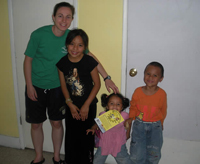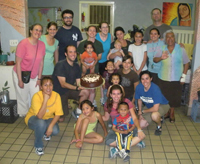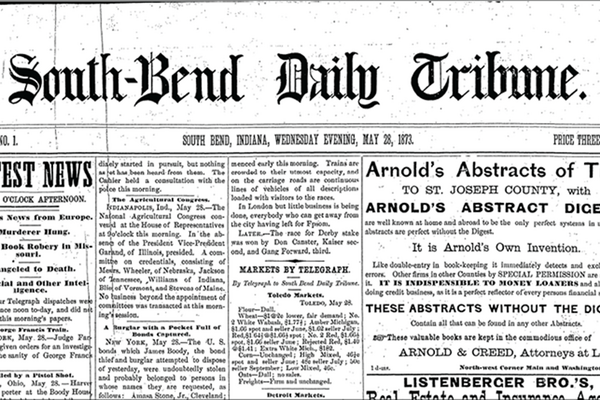
Graduate students across the University will now be able to participate in an experiential learning course previously offered only to master’s in divinity students in Notre Dame’s Department of Theology.
The Common Good Initiative program (CGI), formerly called the Pastoral Leadership Practicum, combines direct involvement in disenfranchised and impoverished communities with coursework in Catholic social teaching and multidimensional poverty analysis.
“This is a program that allows our students to grow not just in the mind but also in the heart,” says CGI Director Robert Pfunder. “Our hope is that the pursuit of knowledge among members of the graduate community might be promoted and animated from within by charity and the common good through the experience of CGI.”
He believes the revamped program, funded by a grant from the Jessie Ball duPont Fund, exemplifies the core of Notre Dame’s mission.
“The heart of CGI is to form the University’s future leaders in ministry, research, and professional life in the practices of charity and justice from an interdisciplinary perspective grounded in the Catholic social tradition,” Pfunder says.
Graduate students who enroll in the program choose either a one- to two-week immersion experience or an eight-week internship with a ministry or nonprofit during the summer.

In the last three years, for example, students worked with the homeless in downtown Phoenix; the mentally ill and those who struggle with addictions in Portland, Ore.; children living in an orphanage in Trujillo, Honduras; and immigrants and migrant workers in the border community of El Paso, Texas, and Ciudad Juarez, Mexico. In the past, students have even traveled as far as Uganda.
Coursework in Catholic social teaching and interdisciplinary poverty analysis complements the summer engagement aspect of the program. Students participate in spring seminars on these subjects to prepare for their summer experiences. When they return in the fall, reflection retreats and classes help them integrate what they’ve learned into their scholarly and professional lives.
Margaret Morgan, a former Pastoral Leadership Practicum student, says she’s excited that the program will now be open to all Notre Dame graduate students because it covers vital issues such as poverty, hunger, thirst, and health.
“This program gives people the opportunity to see beyond the academic world into the lives they are ultimately affecting,” Morgan says. “It makes issues into names and provides context that perhaps had otherwise not been present.”
Pfunder agrees.
“Authentic human development has an important interdisciplinary aspect,” he says, “for it works to foster the development of the whole person, in all of her or his dimensions—and Catholic social teaching provides such a framework for doing so.
“The interdisciplinary structure of the course, both in terms of faculty and students, provides an opportunity for mutual enrichment as we come together to deepen our understanding of poverty and the common good. It is the type of conversation we must have if we are to pursue the common good in society at large.”


